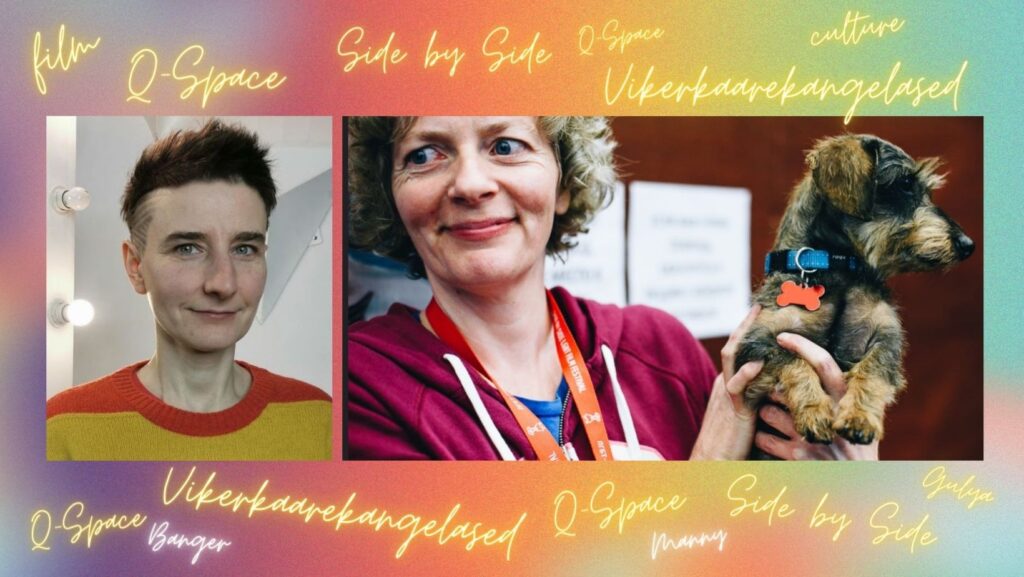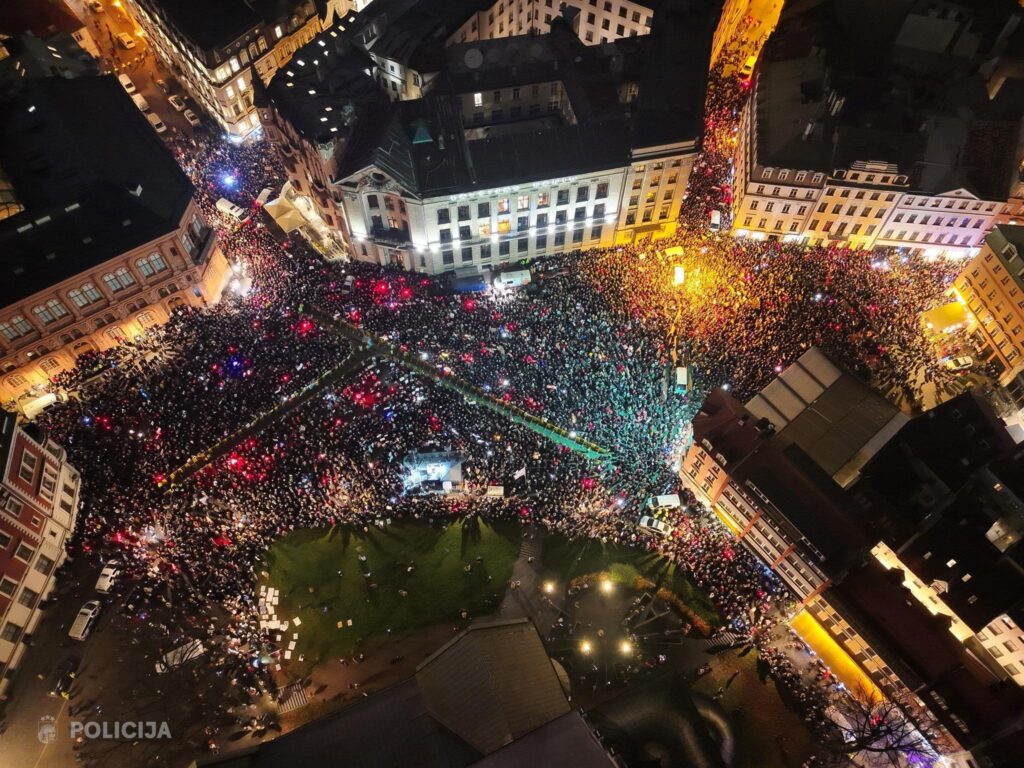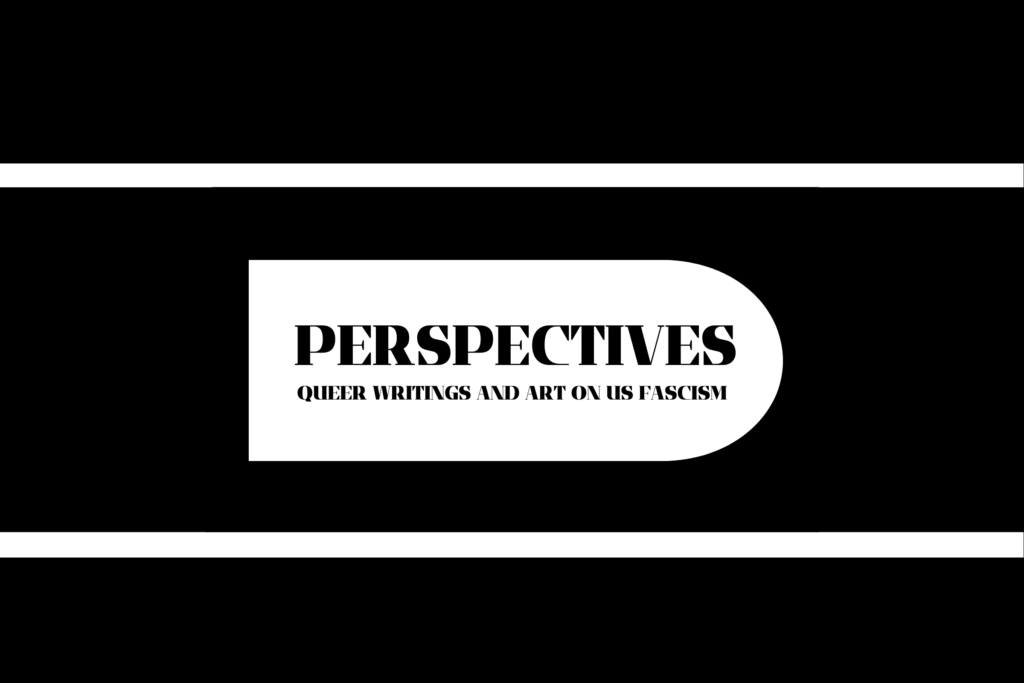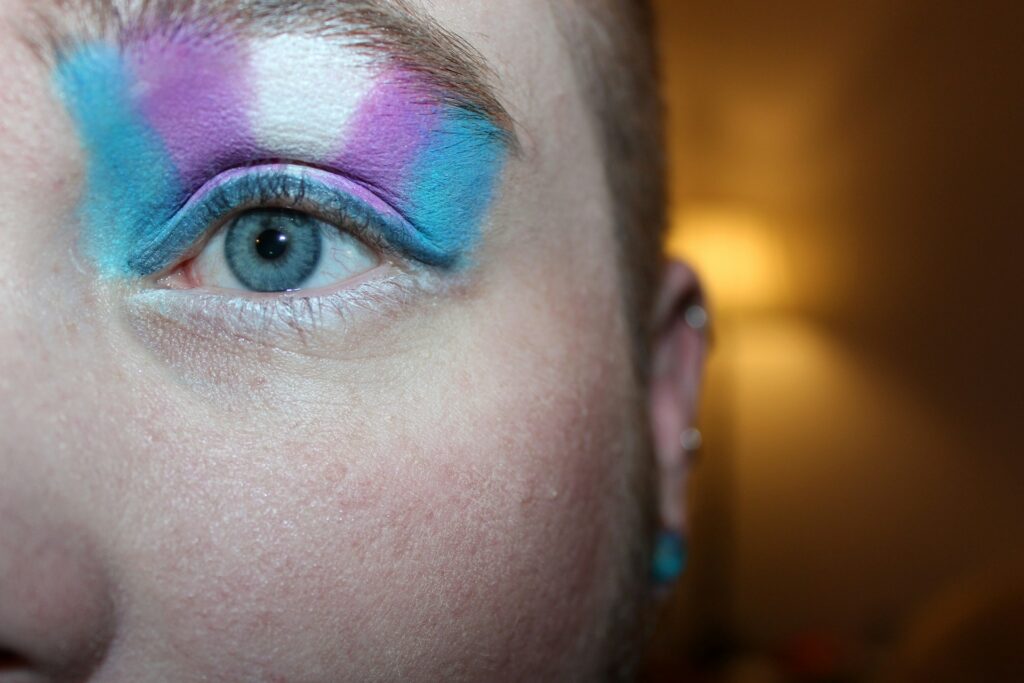Organisers of LGBTQ+ film festival in Russia: “We were a little naïve about the backlash that was going to happen!”
Feministeerium spoke to recent winners of Estonia’s Rainbow Hero of Culture award, Gulya Sultanova and Manny de Guerre, organizers of the long-running LGBTQ+ film festival Side by Side in Russia. They fled to Estonia in protest at Putin’s increasingly repressive regime. They compare working in an atmosphere of bomb threats, intimidation and self-censorship in Russia, which became a part of promoting LGBTQ+ rights in Russia, with their work in Estonia, where they run Q-Space, an English-language LGBTQ+ cultural programme aimed primarily at the Russian-speaking community. For the safety of their colleagues and associates living in Russia, they will not go into further detail at this time about the activities they are continuing in Russia.
Please tell us about your background. Who are you, what was your mission in Russia and how did you end up in Estonia? How was the Side by Side Film Festival born?
Manny: My sphere of interest is history, sociology, and cultural studies of Russia. Growing up against the backdrop of the Cold War, the USSR and Russia became an area of fascination for me and out of that a strong desire to visit and live in the country, which I eventually achieved in 1996, finding a job initially as an English language teacher and later researching and travelling across Russia.
In 2007, the opportunity arose to organise an LGBT film festival with a friend. The idea to do a LGBT film festival was inspired by that earlier period in Russia – the mid-late nineties through to the early 2000s. During that time, especially in Saint Petersburg, I sought out those places where queer people gathered – mainly clubs, concerts, parties that were promoted by word of mouth.
I’m a foreigner from the UK where people are relatively relaxed, open to talk about their lives, and how they feel about being LGBT. In Russia, however, 99% of the people were against coming out, seeing neither the need or possibility. Often people led parallel lives, had fabricated marriages of convenience and hid their sexuality from family, friends etc.
The atmosphere could be at times very oppressive, even aggressive, and clearly many people were depressed and suffered because of this inability to live more freely. This made a lasting impression on me. People need more than several nights a week to be able to be themselves and that’s where the idea for the film festival came from, with the specific purpose to empower LGBTQ+ members through film and cinema, while at the same time establishing contact with society at large and initiating discussion on LGBTQ+ issues and rights with the specific purpose of increasing tolerance, paving the way for the recognition and protection of rights of LGBTQ+ persons in Russia.
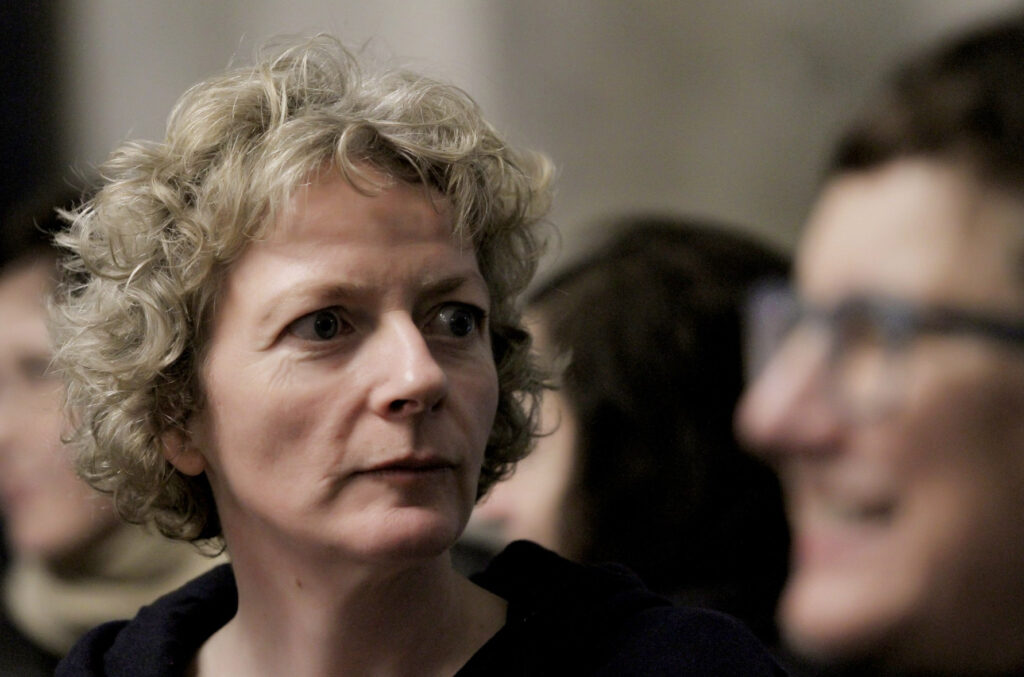
Manny de Guerre’s field of expertise is cultural studies and sociology. She has carried out research in Russia concerning the importance of the arts and music in terms of its social, political and psychological significance. She is an LGBTQ+ activist, co-founder of the Side by Side LGBT Film Festival (Saint Petersburg, Russia) and more recently co-founder of the Q-SPACE project (Tallinn, Estonia). Through the utilisation of cinema and film, photographic and art exhibitions, queer comics, literature and many other art forms both these projects seek to create queer spaces – physical and digital – that bring people together, LGBTQ+ and straight, to express, discuss and reflect on issues of gender identity and sexuality. The aim is to push boundaries of understanding, empower individuals, encouraging them to live as they choose and in context where there is acceptance and tolerance. Photo: Side by Side collection
Gulya: I became involved in Side by Side early on as a volunteer. I had just begun to get involved in LGBT activism in Saint Petersburg and in summer 2008 I had taken part in the Day of Silence and additionally was becoming actively involved in another new LGBT organisation Coming Out that was also being set up. Side by Side approached us and from the start I understood it was an ambitious project, attempting to be a public and city-wide LGBTQ+ event for everyone, and straight away I also wanted to be involved.
Up until February, 2022 we were in Russia working on Side by Side, however, due to the war with Ukraine we chose to leave. All the signs were clear that the regime was going to become even more repressive, and the danger for us as open, publically well-known LGBTQ+ activists significantly increased.
We left for Estonia a week after the outbreak of war and practical reasons brought us here, including having an elderly dog – Banger – of nearly 16 years (another member of the festival team). Although COVID-19 restrictions were in place in Estonia, people vaccinated with Sputnik were allowed to enter.
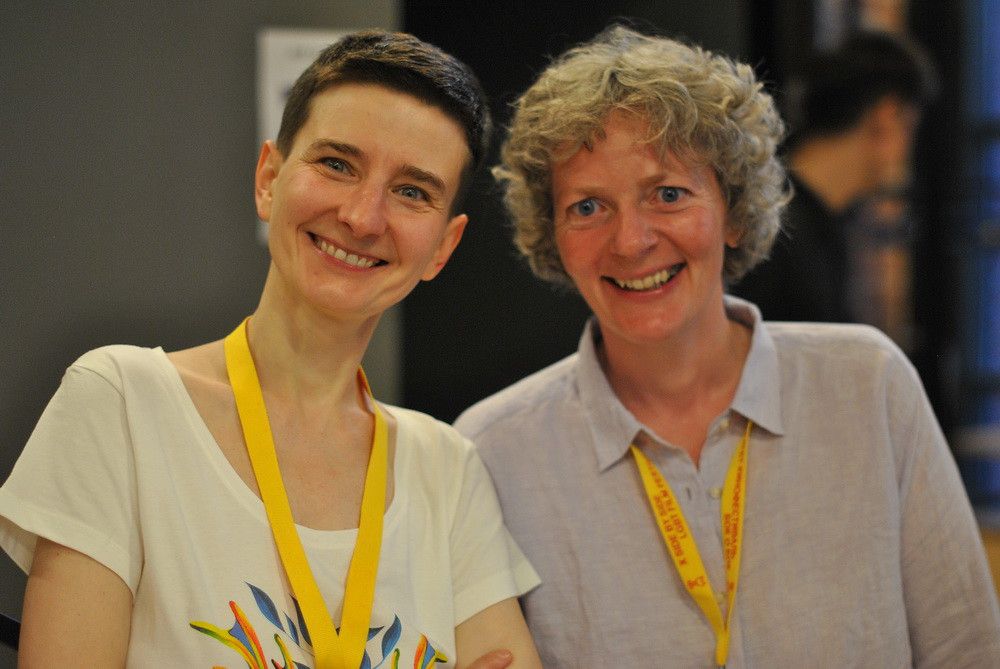
Manny jand Gulya in Moscow. Gulya Sultanova studied German in St. Petersburg and worked for a long time as a translator. From 2005 to 2010 she was an organizer of intercultural school exchange programs between Russia and Germany in the St. Petersburger NGO German-Russian Exchange. Gulya campaigns for the rights of the LGBTQI community in Russia: she took part in demonstrations, organized educational seminars and cultural events. In June 2008 she co-founded the LGBT Organisation Coming Out, since October 2008 she has been organizing Side by Side Film Festival – the first annual LGBT Film Festival in Russia (bok-o-bok.com). In March 2022 she emigrated from Russia to Estonia, Tallinn, with her partner Manny de Guerre. They founded the Q-Space project – a queer cultural project which they are developing now in Tallinn and Narva.
Why and how did you come up with an idea to use film (festival) as means of your wider, awareness raising mission? What is it about this particular form of art that fascinates you?
Manny: Cultural Studies and sociology is my field of expertise and I researched into the impact culture has on individuals and how through culture it is possible to develop and perform identity. Film and cinema is a powerful tool – it can educate, allowing individuals to reflect and change their opinion about something, it can sensitise and increase empathy for a protagonist and it can be a call to action, encouraging people to act on something they see in the film and do something that’s maybe similar in their own context or life. At that time in Russia there was no LGBTQ film festival and therefore it seemed to be the ideal vehicle. Why would it not be possible to have such a festival in Russia? They exist in other countries and places, so let’s do it here too!
Perhaps we were a little naïve about the backlash that was going to happen but if we had been aware or really thought through all the risks, it is possible we might not have even started the project. It was very much a DIY project and get up and go, regardless…
What was it like to be a person fighting for minority rights in Russia? Can you describe Russia as a society before and after Putin started his war?
Manny: Over the last 20 years, the Putin regime has been extremely repressive. It has tried through various means – coercion, threat, violence, torture, police brutality and impunity, introduction of new laws, media propaganda – to stifle, disrupt and bring an end to any type of civil activism that is viewed as being in opposition to the state ideology. In spite of this oppressive atmosphere there was a great deal of activism going on from many different groups – LGBTQ+, feminist, child free, environmentalists, animal rights, human rights, political – and as a result of their collective work Russian society was changing – slowly, but changing – becoming more pluralistic, as a much broader range of ideas reached the public space.
Gulya: Naturally this was only at the start and being achieved in a highly oppressive context, where an activist or organisation could at any moment become targeted by the state, especially if it seemed to be successful. With Navalny and his supporters, we have seen the lengths the state has gone to wipe out any potential opposition, labelling the organisation as extremist, applying extreme pressure to supporters – raids, opening criminal investigations, and imprisoning leaders.
Following the invasion of Ukraine these tactics have accelerated. The regime has cracked down, even introducing a lot of new legislation that basically stops any criticism of the war, resulting in a possible 12-year prison sentence if broken.
In 15 years, you managed to do around 30 Side by Side LGBT Film Festivals in different areas of Russia. Please tell us about your successes and struggles in Russia with the Side by Side LGBT Film Festival?
Manny: Side by Side was more than just a festival. We had a lot of parallel projects going on: production and distribution of books and information brochures, online film screenings (Film of the Month), podcasts – Queering Culture, online discussions – Side by Side on the Sofa with…, website opinion columns (LGBTQ+ Cinema, Hot Topic, LGBTQ+ serials, Queer Art), regional outreach film and discussion programme (LGBTQ+ Cinema in Your Hometown), and a volunteer programme where people were actively engaged in the life of the festival on a daily basis, received trainings and participated in exchanges. Our success was significant and through all these activities we were able to challenge the homophobic, transphobic discourse in the public domain, creating a more tolerant society. We helped to open up media (especially independent publications) to correct reporting on LGBTQ+ issues, we mobilised and empowered the LGBTQ+ community and increased visibility, established a broad network of allies consisting of hundreds of organisations and individuals from film critics to international organisations ready to invest their time and support in the project.
Gulya: Side by Side was under constant pressure and at every turn there was an attempt to disrupt and interfere with our work – threats to venues, who would suffer surprise inspections if they continued working with us, hoax bomb calls during the festival that led to evacuations, nationalist, fascist and neo-Nazi groups gathering outside cinemas, death threats to organisers, failure of police to investigate and prosecute criminal activities against the festival, being taken to court under the foreign agents’ law, and the list goes on.

Film Festival Side by Side 2018 Moscow crowd. Photo: Side by Side private collection
Are you in touch with the Russian LGBTQ+ refugee community in Estonia and elsewhere in Europe? How are they coping?
Gulya: Many people have left Russia. Not just people from the LGBTQ+ community but a lot of people who were involved in civil activism, media, culture and so on. People who have been able to leave are very lucky but being in exile is not easy and people face many new challenges having to legalise their presence, establish a new life, new careers, and find work. This of course creates stress and psychological pressures.
We remain in contact with people as much as time allows. Not so many people came to Estonia, due to stronger restrictions concerning Russian citizens. It is important to keep those ties and be connected with the exile community as well.
Russia was planning to implement laws that would label any LGBTQ+ related content as propaganda and prohibit sharing such content even to adults. Did it go through and how will that affect your work in Russia?
Manny: Yes, the law was passed and came into force in December 2022 banning all LGBTQ+ content even for the adult population. The law is absurd, Side by Side is not complying, and we have removed all warnings from our website – which is now only accessible in Russia via VPN.
Gulya: For organisations and individuals in Russia, the law is impactful. More work is being done underground and there is no public advertising for the events. The law sends a negative message to the population and gives licence for homophobic and transphobic behaviour which can be expressed not only in verbal forms but also physically and lead to violent attacks – already several incidents of this kind have been reported.
Manny: The law forces people to keep lower profiles, be less visible and enact greater self-censorship. People are being pushed back into the closet and society is slowly becoming like the USSR.
What are the platforms Russian minorities are using to support each other?
Gulya: Telegram is one of the main channels and there are a range of digital applications that people can use.
What are the effective ways by which your former volunteers and supporters take care of their mental health in today’s Russia?
Manny: There is the possibility to access services for mental health support from various LGBTQ+ organisations online and in person. I think a lot of people need not to feel alone and it has become important for people to meet and come together informally. Also, to do something purposeful for the movement and where possible, to volunteer for projects on- and offline. Now that you are here in Estonia, do you feel welcome and safe?
Manny: Since arriving in Estonia we have been made to feel very welcome. From the start, people from the LGBTQ+, feminist and human rights community were ready to help and make us feel welcome. Naturally, we feel safer and it is a significant change that when conducting a public event, you do not have to deal with threats and hoax bomb calls etc. The Q-Space project has also captured the enthusiasm and energy of many people. There clearly is a demand for cultural events relating to LGBTQ+/feminist issues and the future looks positive!

Q-Space meetings. LSVD and the LGBT movement in Germany: 33 years of fighting for diversity and respect. Photo: CONRADO (via Q-Space)
Are you following the discourse and debates on adopting of the same sex marriage in Estonia? How do you feel about it?
Gulya: It is a significant development that the bill has got to parliament. The arguments being presented by the opposition are nothing new and repeat the usual weak, unfounded and populist attitudes that have been circulated in conservative, right-wing circles in other countries where the equal marriage bill got through. The outcome looks hopeful.
Manny: There is a feeling that Estonian society is more ready for this than against. However, if we are to go by statistics there is a difference in attitude between Russian and Estonian speaking communities. Among the former group, there is clearly less tolerance towards LGBTQ+. More educational work needs to be done with this group and it is important they do not get left behind.
Gulya: Legislative change in this field also needs to be accompanied with continuing enlightening work with the population as a whole. LGBTQ+ people need to feel safe and comfortable to make use of these laws, be openly out and visible, without fear of any negative backlash.
It is Pride Month. Did you take part in the Pride march in Tallinn? Can you describe the atmosphere? Would anything like this be possible in Russia any time soon?
Manny: Yes, we both took part in the Pride march in Tallinn. It was very impressive and was great to see so many people at the event and so many LGBTQ+ flags everywhere in the centre of the city. Up until that moment the visibility of the LGBTQ+ community in Tallinn seemed very limited and we had not seen so many flags, people just wearing badges for example and openly identifying as LGBTQ+. The fact that there were so many people and allies will perhaps give more encouragement to people to live out on a daily basis, as there is clearly a community that is in the process of forming and people need not feel alone, isolated or fearful.
In present day Russia, anything like this would not be possible. Prior to the start of the war, the LGBTQ+ community was in fact very visible on the streets and people openly identified by wearing badges, clothing, bags with slogans on etc that clearly marked them out as either LGBTQ+ or as an ally. Due to the new law, however, that was passed in December, 2022 and the increasing homophobia, transphobia, I guess that people are being more careful of displaying such attributes in public. There have already been several incidents where people were arrested by the police for simply wearing a rainbow badge in public. It is even more unpleasant that there have been physical attacks on people who were considered to be LGBTQ+. In the context of the general repressions relating to the possibility of doing any public demonstration in Russia, doing some kind of Pride would be impossible now. When it was attempted several years ago in Saint Petersburg or Moscow, it often ended in violence and arrests.
It should be noted, however, that not all public demonstrations for LGBTQ+ rights ended badly and flash mobs for the 17th May for example were often very successful, gathering a lot of people. Of course, they took place under a great deal of duress but sometimes maybe up to 500 people gathered. People in Russia were ready for change but unfortunately today we live in different times and just harbouring the thought of doing Pride feels dangerous.
What are the 5 films from Russia or abroad that you’d recommend to Feministeerium readers?
Stonewall Uprising (it was shown in the Film Museum on Thursday 8 June as part of Baltic Pride)
A couple of Russian collections that capture the situation in the country before the war:
Rodnaya A good collection of Russian shorts from young filmmakers
Thank you and Happy Pride Month!
